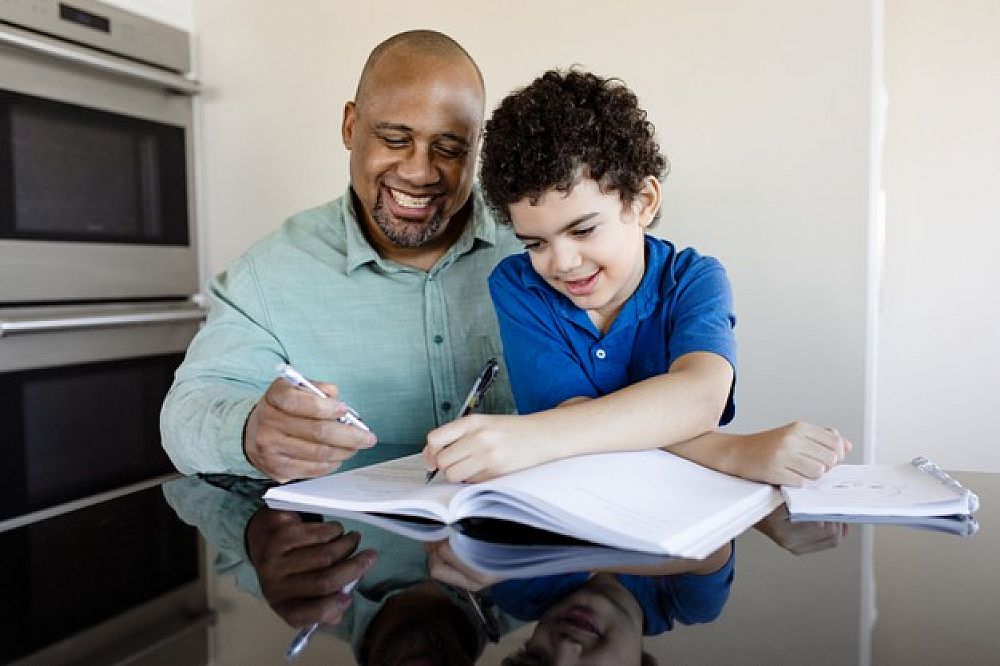Teaching Strategies: ✅ How to Connect With ESL Students

Some people might think that the methodology is of greater importance than any other teaching aspect. Yet teaching is based on human relationships. Therefore it is essential whether the teacher manages to establish harmonious interactions between faculty and students. Bernieri defines these interactions as 'rapport' (Galzier 2016). According to Frisby and Myers, rapport is "the ability to build a relationship based on trust and harmony and is considered to be a positive and prosocial behavior that is relationally powerful enough to enact cohesiveness, reduce the threat, and structure social interaction (Fleming 2009)." Multiple studies have shown that rapport has a significant effect on students' motivation, participation, and achievement. Del Guercio also emphasizes the relevance of rapport in effective classroom management. Are forcing and coercing are never good ways of getting a student to behave appropriately or to accomplish a particular activity (Yezbick 2016).
Table of Contents
Are you ready to teach English abroad or online?
Check out what our course grads say in our many video testimonials!
This post was written by our TEFL certification graduate Maria C. Please note that this blog post might not necessarily represent the beliefs or opinions of ITTT.
Working Strategies
A lot of papers have been written on how to establish a healthy student-teacher relationship. It is vital to bear in mind that only combining these strategies can be effective (Smith). Moreover, building rapport is an ongoing process, and the teacher has to strive to maintain it (Galzier 2016). According to an empirical study conducted in 1999, one factor contributing most to effective teaching is empathy with students' needs. This means that the teacher has to be available, helpful, fair, and sensitive to students' levels (Fleming 2003). One of the essential students' needs is receiving detailed and personalized feedback on assignments. Breithaupt states that providing feedback tends to bolster their confidence and emphasizes the teacher's willingness to help if needed (Galzier 2016).
Background
Furthermore, it is crucial to recognize students' diverse and different backgrounds. This includes not level and needs but culture, interests, skills, and personalities (Brown Rojas). It should be stated explicitly that the density is welcome and valued in the classroom (Fleming 2003). Also, learning and using students' names, which makes the interaction more personal, is a suggestion that is mentioned in almost every article about building rapport. To learn more about students' interests, it is recommended to foster communication before and after class. Teachers can take into consideration students' interests and hobbies when planning a lesson (Ellsworth 2015). Another technique to enhance student-teacher communication is to start regular correspondence, such as sending a welcoming e-mail before the first school day. Getting involved in school events, incorporating discussion of hobbies, or commenting on their interactions are additional ways of showing a genuine interest in students.
Personality
Personal qualities and charisma may also play a vital role in the process of building rapport. Incorporating humor and fun into the classroom appears to be a popular and powerful technique to enhance students' motivation. Using humor shows students that the instructor is a human being (Yezbick 2016), making the atmosphere less tense. However, the teacher has to be cautious while using humor in the classroom as the primary goal of teaching is not to entertain, and it also might lead to a lack of respect (Smith) what a good teacher does have to permanently show as his or her personal quality is enthusiasm for the subject. Also, appropriate voice and body language techniques may contribute to a more pleasant atmosphere in the classroom. A sarcastic, disrespectful or condescending tone should always be avoided. Furthermore, sarcasm and indifference can be conveyed not only through the voice but also body language (Fleming 2003).
Additional Factors
Finally, simple tips, such as giving clear instructions, arranging suitable seating, varying activities, using aids, and the board can contribute to building or maintaining rapport (Brown Rojas).
Are you ready to teach English abroad or online?
By and large, as mentioned above, establishing rapport is an ongoing process that requires a combination of many different techniques and has to be permanently maintained. The key to acquiring and improving this essential skill is teaching experience. According to Aultman, gaining experience helps teachers to gain confidence, which, in turn, allows them to more easily make decisions on how to teach students (Smith).
Apply now & get certified to teach english abroad!
Speak with an ITTT advisor today to put together your personal plan for teaching English abroad!
Send us an email or call us toll-free at 1-800-490-0531 to speak with an ITTT advisor today.
Related Articles:
- How do I get a job teaching English in South Korea
- 10 Questions You Need to Ask Before Enrolling In a TEFL Course
- The 10 Best Destinations for Teaching English Abroad in 2018
- Online or In-Class - Which TEFL Course Should You Take?
- The Best Government Programs For Teaching English Abroad
- What Scams to Look Out for When Looking for TEFL Jobs



